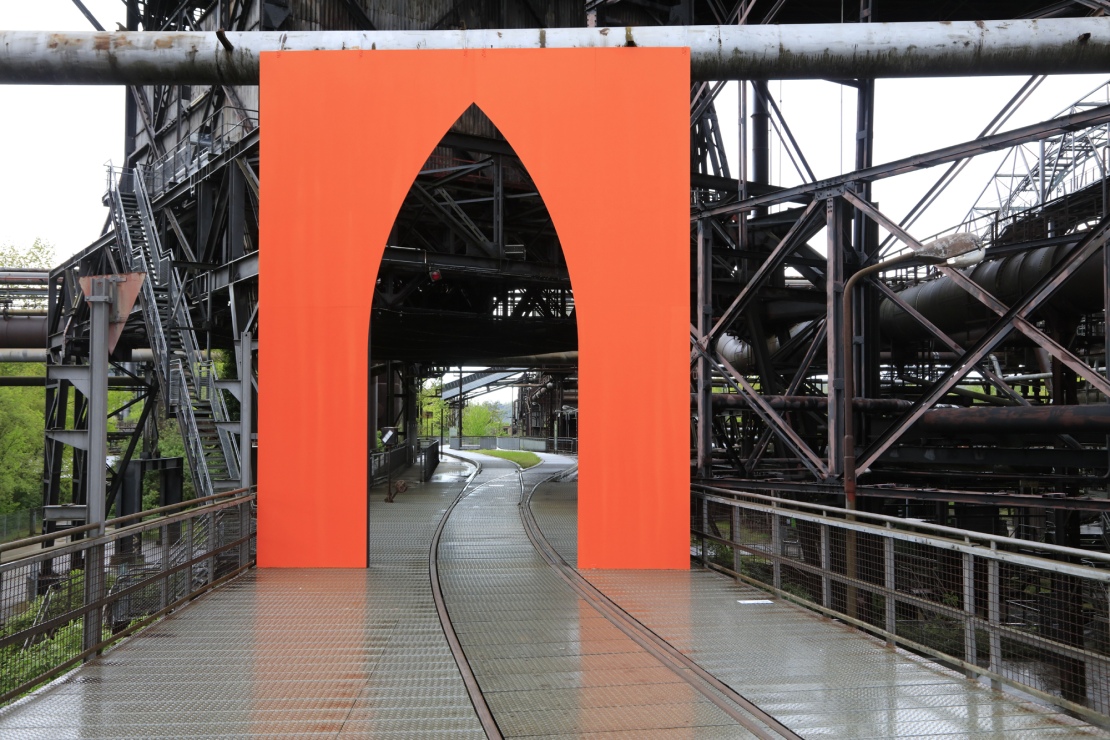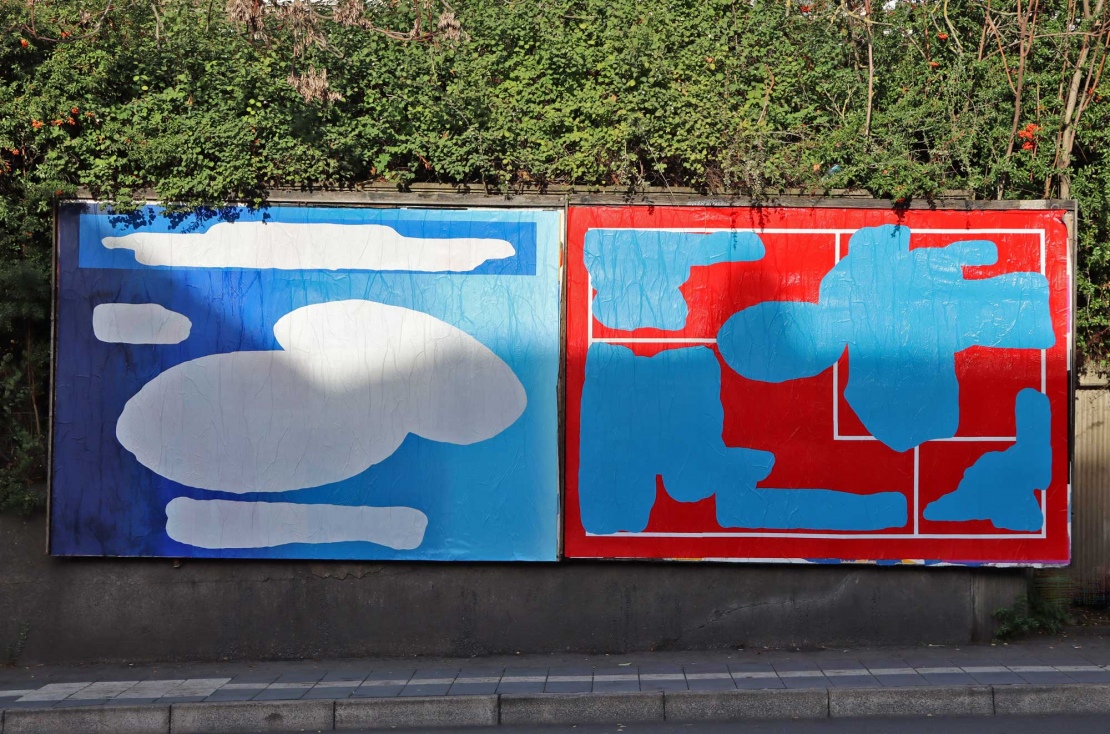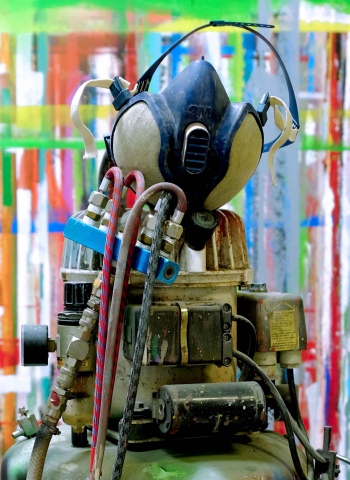OX
Website: www.ox.com.fr
Exhibitions
Works
Obus gothique

OX KHV kompr
Copyright: Karl Heinrich Veith
Date
2024, in situ
Dimensions
5 x 6 m
Material
Holz, Acrylfarbe
Description
OX’s artistic work revolves mainly around advertising hoardings, which the Frenchman has been refashioning, without permission, since the 1980s. Such billboards are strategically positioned by the advertising industry, often in places where the traffic will flush by as many potential consumers as possible. Together with the legendary artist group Frères Ripoulin, this pioneer of artistic reappropriation was already repurposing billboards as canvases and exhibition surfaces long before a new generation of ex-sprayers began to popularise a form of street art.
His trademark practice is a minimalist-abstract and yet – or precisely for this reason – immensely effective interaction with a work’s specific environment. Less frequently, as with his in situ work Obus gothique, he creates installations in which the negative form also plays a role. Here, the archway reveals the bowels of heavy industry behind. For the viewer, this may recall an arch from a piece of sacred architecture or – in light of the role of the Völklingen Ironworks during the two World Wars – the shape of an artillery shell. Who can say with any certainty?
Robert Kaltenhäuser
as part of INTERREG GRACE
No title

OX 4
Copyright: Weltkulturerbe Völklinger Hütte / Corinna Schneider
Date
2022, in situ
Dimensions
2,55 x 3,55 m
Material
Acrylic, paper
Description
Affiche, culture jamming, ad busting, billboard hacking—there are many names for the technique of (unauthorized) work on commercial advertising space. OX, whose pseudonym can also be read—very much as intended—visually and geometrically as a circle and cross, is one of the French pioneers of this art form. He “took over” his first posters in the mid-1980s. In the meanwhile, he has mastered the genre. As a rule, the “context in which the billboard is located guides [his] graphic decisions,” OX explains: “I am interested in the landscape, the architecture, the signage, the ‘urban furniture,’ the advertising, and even the shadows.” For Urban Art Biennale 2022, by contrast, on two billboards opposite the old train station he is reflecting on the poster as medium. His collages are inspired by the “raw and random aesthetic” that results when the images and messages of commercial billboards are damaged by weather or by the destructive rage of passersby. Over the course of the Biennale, OX will placard the two billboards several times with his “torn posters” in order to “imitate in an artificial and accelerated way the appearance and disappearance of these ephemeral images.”
